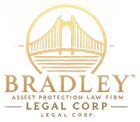Introduction to Irrevocable Trust Protection
When it comes to asset protection, many individuals wonder, “Can a lien be placed on an irrevocable trust?” This question has surged in popularity, especially as more people seek effective strategies to safeguard their wealth from creditors. Meet Sarah. Like many individuals, she dreamed of a secure retirement and a legacy for her family. However, when she sought out ways to protect her assets, she stumbled upon domestic irrevocable trusts, mistakenly believing they would be her saving grace.
In this article, we will explore the reality of irrevocable trusts as an asset protection tool, the potential pitfalls they present, and how strategic planning can truly safeguard your wealth.
The Illusion of Security with Irrevocable Trusts
Excited to implement her newfound strategy, Sarah rushed into establishing an irrevocable trust without fully understanding its implications. She believed that by transferring her home and retirement savings into the trust, she could secure her family’s future from potential legal issues. After discovering the costs associated with setting up an irrevocable trust could be as low as $2,500—or even free if she gifted her assets outright—Sarah thought she had found a foolproof plan.
However, she did not consider the legal ramifications of giving away her assets all at once. When creditors came knocking, a judge examining her financial history was quick to raise an eyebrow. Courts typically view large asset transfers with suspicion, suspecting that they may be attempts to delay, hinder, or defraud creditors.
Click this link to learn about fraudulent transfers:
https://btblegal.com/blog-articles/f/understanding-fraudulent-conveyance-in-asset-protection
The Consequences of Misguided Decisions
Sarah’s trust quickly became a liability. When faced with a lawsuit, her creditors hired a specialized attorney to investigate her financial situation. It didn’t take long before the judge ruled that Sarah’s assets were unprotected. Because she’d made significant transfers into the trust, the court had the authority to ‘claw back’ those assets for creditor claims. The repercussions were severe, leaving Sarah in a worse financial position than before.
Worse yet, if Sarah had simply gifted her assets outright, the judge might have been more lenient. Instead of positioning her family for success, her well-intentioned decisions resulted in financial ruin.
The Key Difference: Strategic Asset Planning
So, what could Sarah have done differently? By taking legitimate steps to structure her estate and asset plan, she could have moved certain assets into a legal vehicle like The Bridge Trust®. This innovative solution combines the benefits of irrevocable trusts with strengthened protections while avoiding the appearance of fraudulent conveyance—a significant legal concern.
It’s crucial to understand that while giving everything away seems abnormal, moving assets into legitimate business and estate planning tools is a standard practice, even when facing potential financial crises. This distinction is vital, as it fundamentally changes how a court views your actions.
The Bridge Trust® operates as an irrevocable trust, but here’s the important part: you don’t actually give your assets away. You retain direct control and remain the beneficiary until those assets are genuinely threatened. This structure offers a significant advantage because, if challenged, you can move your assets beyond the reach of U.S. courts—a flexibility not provided by standard irrevocable trusts.
Understanding the True Nature of Asset Protection
The cautionary tale of Sarah underscores that while irrevocable trusts can be part of an asset protection strategy, they are not foolproof. A comprehensive understanding of how asset protection works is vital to avoid the pitfalls associated with immediate transfers of assets.
In a well-structured asset protection plan, strategizing proper asset management without triggering red flags is essential. This plan should emphasize both protection and control, ensuring that your family’s future is secure.
More Effective Strategies for Asset Protection
So, how can you effectively safeguard your assets? Here are several important strategies:
1. Layered Asset Protection: Utilize a combination of domestic and offshore trusts to diversify protection. This strategy can help avoid drawing undue attention from creditors.
2. Limited Liability Entities: Hold assets in limited liability companies (LLCs) or corporations instead of transferring them directly into a trust, thereby shielding personal liability while allowing for a more secure transfer structure.
3. The Bridge Trust®: Incorporate The Bridge Trust® into your asset protection plan. This tool provides the benefits of irrevocability without relinquishing control, offering a more robust strategy in the face of potential legal challenges.
4. Consult Professionals Regularly: Work closely with asset protection lawyers and financial advisors who specialize in asset protection to craft a tailored plan that navigates the complexities of the law while remaining compliant. You do not go to an orthopedic surgeon to do brain surgery.
5. Long-Term Planning: Understand that asset protection is an ongoing process. Regularly reassessing and adjusting your strategies based on changes in your financial situation and the legal landscape is crucial.
Conclusion: Protect Your Wealth Effectively
Just like Sarah, many individuals seek ways to protect their wealth from creditors. While irrevocable trusts present certain advantages, they can also lead to significant risks if not properly implemented. A robust and thoughtfully crafted asset protection strategy is essential to truly safeguard your family’s future.
If you’re considering asset protection as a part of your financial planning, reach out to us today. Let us help you create a personalized plan that genuinely protects your hard-earned assets. And for a deeper understanding of how an irrevocable trust functions, don’t miss our review of The Key Concepts of Asset Protection #3: Irrevocability.
If you are interested in our services, call (888) 773-9399 for a legal consultation with an asset protection attorney.
By: Brian T. Bradley, Esq.




